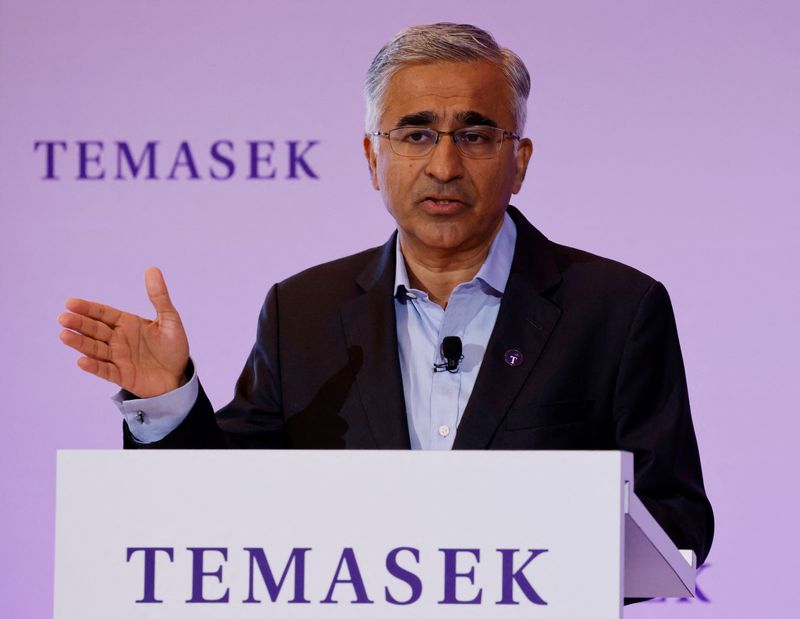By Yantoultra Ngui and Xinghui Kok
SINGAPORE (Reuters) - Singapore investment firm Temasek Holdings on Tuesday posted a 5.2% drop in its net portfolio value to S$382 billion ($284.65 billion) in the financial year that ended in March.
The drop in net portfolio value is its first since the 2020 financial year and came amid intensified global market volatility.
Temasek's chief financial officer Png Chin Yee said the company, which is an investor in Chinese finance company Ant Group, was hopeful the China tech sector's troubles were over after signs a regulatory crackdown was ending.
Temasek said while it Singapore investments remained resilient, its global direct investments had dropped in valuation in the past two years.
Over the last decade, Temasek has grown its net portfolio value by 77.7% to S$382 billion from S$215 billion in 2013. Its portfolio value hit a record high of S$403 billion in the year ending in March 2022.
"We maintain a cautious investment stance and expect to invest at a moderated pace this financial year, given the challenging macroeconomic environment," Temasek's Chief Investment Officer Rohit Sipahimalani said.
"However, given our strong liquidity position, we are ready to step up our investments in a market correction."
Temasek is ranked among the top 10 investors in the world. It is mainly anchored in Asia, with a 63% exposure to the region as measured by underlying assets of its portfolio companies, most of which are in Singapore and China.
Temasek holds stakes in large listed Asian companies such as Singapore's biggest lender, DBS Group (OTC:DBSDY), and China's second largest lender China Construction Bank (OTC:CICHF).
Its unlisted holdings include Singapore's port operator PSA International and property developer Mapletree Investments.
Its unlisted assets was 53% of its portfolio as of March 31, 2023, up from 27% in 2013, according to Temasek on Tuesday.
Png said Temasek was optimistic about recent developments concerning the Chinese tech sector.
After hitting Ant Group with a $984 million fine, the People's Bank of China said on Friday that most of the main problems platform companies' businesses were facing had been rectified and regulators would shift their focus to overall regulation of the industry rather than specific companies.
"We view it quite positively, right, obviously there was a lot of overhang in the tech sector," Png said.
"So I think this is actually a good development for the sector. You can see the stock prices have reflected this as well."
Most of China's tech companies share prices have rallied since Friday on the hope that strict regulations that have stymied growth for more than two years would ease.
Ant and its subsidiaries were fine for having violated laws and regulations in areas including corporate governance, financial consumer protection, payment and settlement business, according to the PBOC.
"Ant still has got strong advantages. It has got great technology, it's got a great track record in innovation. So, once this is sort of behind them, they can really focus on stabilising and growing," Png said.
(This story has been corrected to fix the year to 2020, not 2019, in paragraph 2)
($1 = 1.3420 Singapore dollars)
